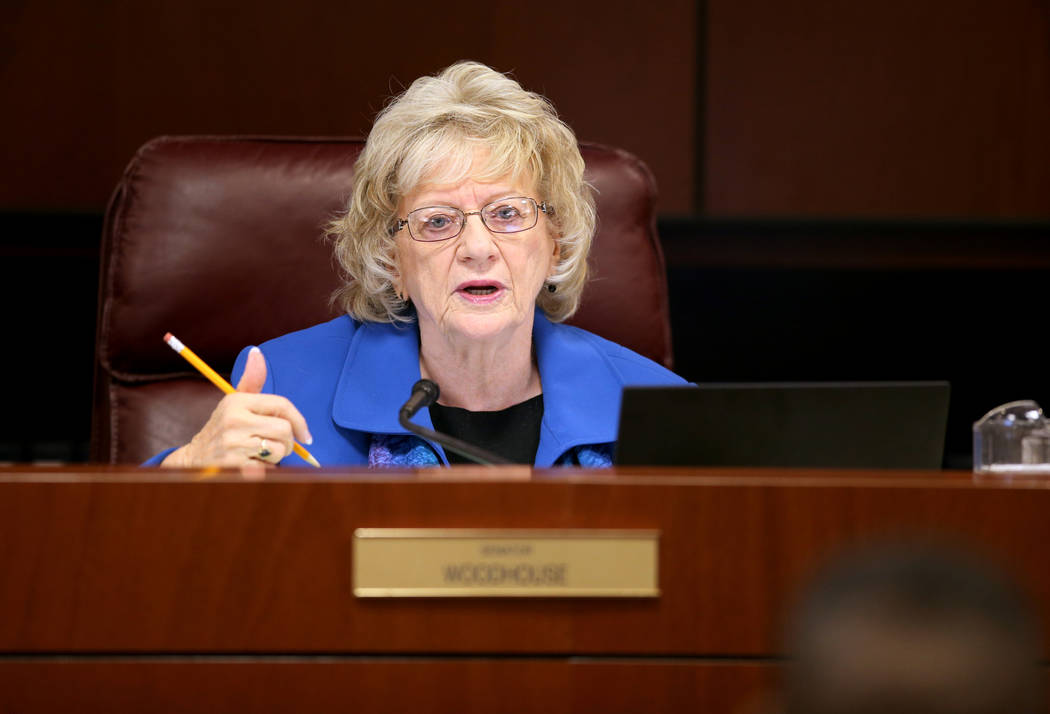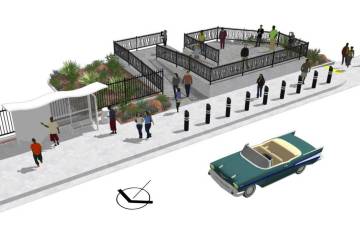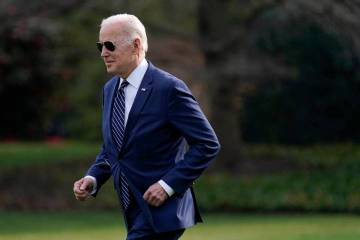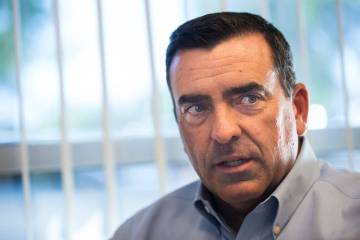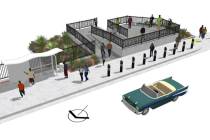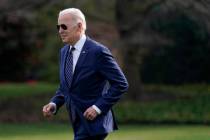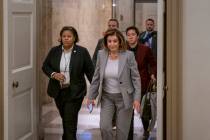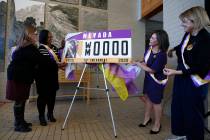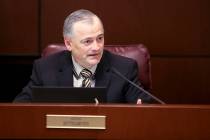Resolution aims to put Nevada Legislature on annual schedule
CARSON CITY – The Legislature’s latest effort to end its constitutionally set biennial sessions and begin meeting every year started its latest journey through the Statehouse on Wednesday.
Senate Joint Resolution 5 seeks a state constitutional amendment to make the change. To succeed, it would have to pass both houses of the Legislature this year and in 2021, then be approved by voters in 2022.
The last time such a measure made it through two successive legislative sessions and to the ballot was 1970, when voters rejected it 2 to 1.
In this decade, the measure won initial passage in 2013 but died in its second legislative go-around in 2015. A 2017 effort also died.
“A lot has changed since it was first proposed, and the voters deserve another opportunity to weigh in on this critical issue,” Sen. Joyce Woodhouse, D- Henderson, a co-sponsor, told the Senate Legislative Operations and Elections committee.
This year’s effort would rejigger not only how and when Legislature meets but also how lawmakers are paid — though not how much. Primed for opposition from those who see the move as legislative overreach, Woodhouse and two other sponsors sought to make their case that government today is too complicated and too fast-moving for lawmakers to convene so infrequently.
“A lot of times what this gets reduced to is people saying, ‘Well, you’re trying to increase your salary.’ That’s not it at all,” said Sen. Pat Spearman, D-North Las Vegas. “It’s a governance issue. Right now the state of Nevada has two and a half branches of government.”
Woodhouse said annual sessions would make the Legislature more responsive, more efficient and better able to fulfill its oversight and policy-making roles.
The Legislature has held regular sessions lasting 120 calendar days in odd-numbered years since 1999. On average, convening from the beginning of February to the beginning of June, that 120-day calendar includes 96 actual legislative days.
In the past two decades, the Legislature has been called into 14 special sessions, the longest of which last nearly a month, in 2003. Under provisions that date from Nevada’s 1864 statehood, lawmakers are paid only during the first 60 days of a regular session. How much they are paid can be changed at any time, with the changes taking effect prospectively with the next Legislature.
As proposed, the Legislature would convene for 90 legislative days in odd–numbered years and 60 legislative days in even years. How those legislative days are determined — five days a week or only a few per week for a longer stretch — would be up to lawmakers. Instead of being paid only during the first 60 days, lawmakers would be paid on a regular schedule, the frequency of which — weekly, semimonthly or some other cycle — also would be determined later.
As far as cost, a fiscal note with the resolution estimates an additional outlay of $13.3 million based on current pay rates and practices. The current biennial session is budgeted at $20 million. Sponsors acknowledged the higher expense but said other current intersession or special session expenses would end.
Where other states stand
The number of state Legislatures that meet annual went from 19 in the early 1960s to 41 by the mid 1970s, according to the National Conference of State Legislatures. Today, only Nevada and three other states — Montana, North Dakota and Texas — hold biennial sessions. All meet in odd-numbered years. The two most recent states to switch to annual sessions were Oregon, in 2011, and Arkansas, in 2009.
Sponsor Sen. Mo Denis, D-Las Vegas, said comparing Nevada to much larger Texas was misleading: Sessions there last longer, the state has more frequent and longer special sessions, and legislative standing committees can meet at any time, he said.
The NCSL categorizes 10 state Legislatures as full-time, 14 as part-time and 26 as a hybrid. As far as salary, a 2018 survey of what state lawmakers are paid ranked Nevada 32nd of out 50, at $23,400 in all.
Opposition — or at least hesitation — came from Republican members of the committee. Sen. Heidi Gansert, R-Reno, expressed concern that annual sessions would make it more difficult for people to serve as “citizen lawmakers.” Sponsor Sen. Mo Denis, D-Las Vegas, cited the experience of other states and said taking four months off every other year presented its own set of financial and time burdens on lawmakers.
Amid other questions on how the change might affect legislating, Spearman stressed that the issue at hand “is whether we’re going to send this resolution to the people.”
The measure will come back to the committee for later vote.
Contact Bill Dentzer at bdentzer@reviewjournal.com or 775-461-0661. Follow @DentzerNews on Twitter.
Here is a summary of the pros and cons of annual vs. biennial legislative sessions, as summarized on the National Conference of State Legislatures website:
For annual sessions:
— Biennial format no longer works for managing complex issues and problems encountered by today's state Legislatures. Legislative responsibilities too complex to discharge just every other year.
— More frequent meetings are hedge against executive overreach, raise Legislature to co-equal government branch.
— Better legislative oversight, administrative accountability.
— Faster response to federal changes that involve or affect states.
— More timely, orderly policymaking process.
—Less need for special sessions.
For biennial sessions:
— Enough laws on the books. Biennial sessions are a safeguard against legislative overreach.
— Yearly sessions will foster legislative harassment of the administration, agencies.
— Inter-session periods good for interim study, fact-finding by lawmakers and commissions.
— Lawmakers have more time to meet with constituents, mend political fences, campaign.
— Annual sessions increase legislative costs.



